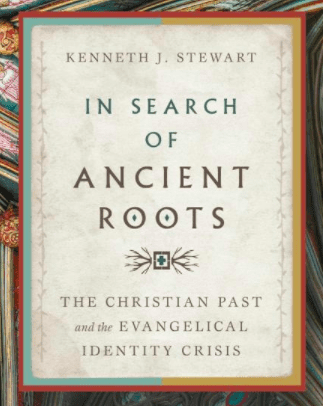 There was a dustup late last week stirred up by Al Mohler, who accused Andy Stanley for soft-pedaling when it came to homosexuality, and then Mohler ramped up the rhetoric by wondering if megachurches were the new liberalism. Denny Burk chirped up some support for Mohler. Then Rick Warren got into the act and told Mohler he was libeling thousands of megachurch pastors in his comment about liberalism.
There was a dustup late last week stirred up by Al Mohler, who accused Andy Stanley for soft-pedaling when it came to homosexuality, and then Mohler ramped up the rhetoric by wondering if megachurches were the new liberalism. Denny Burk chirped up some support for Mohler. Then Rick Warren got into the act and told Mohler he was libeling thousands of megachurch pastors in his comment about liberalism.
CT posted a sketch of the story, and led it off with these unambiguous words: “His message was troubling,” said Dennis Burk, professor of biblical studies at Boyce College. “It was ambiguous at best. It was a total capitulation to the spirit of the age at worst.” The word “troubling” is the new big theological frown and it is used by those who have their theological ducks quacking at the same time. Burk then chased Andy Stanley down the slippery slope to total capitulation (at worst). That comment made me ask if he wondered what might have been the best read of the situation.
This whole story reminds me of two stories about Jesus and his Pharisee critics, two stories when he befriended those whom the others thought unacceptable.
One time Jesus was invited to the home of a Pharisee named Simon. (You can read the whole account at Luke 7:36-50.) A prostitute heard Jesus was at the Pharisee’s house and so she apparently invited herself in. She washed and then oiled and wiped Jesus’ feet with her tears and her hair. She kissed his feet. In this man she had found grace and forgiveness and the possibility of a new life.
The Pharisee accused Jesus. He said that had Jesus been a real prophet (a true man of God, one faithful to the Torah and its traditions) he would have known what kind of woman was doing this deed of washing and kissing. What he would have known, had his theological sensitivities been set to the right level, is that the woman was a sinner. Evidently that label implied separation and denunciation.
Not so for Jesus. He denounced the Pharisee. Why? Because Simon thought being right was being good while for Jesus being good was the point of being right. That woman was expressively generous to the man who would go to the cross for her; the Pharisee held back his love and grace for both Jesus and the woman because he feared being good might compromise being right. Jesus pronounced her forgiven because of her expression of adoration for Jesus. Jesus saw her actions as faith and sent her home with Shalom. The Pharisee’s friends wondered aloud about Jesus’ own theology: “Who is this who even forgives sins?” They were at least asking the right question.
And I thought about the Samaritan woman, where the disciples had to learn that being right summoned them to be not only right but also good. (You can read this story in John 4.) Note again that John opens this chp with a reference to the Pharisees making Jesus unwelcome (4:1-2). So Jesus went back to Galilee but this time, instead of wandering up the Jordan River valley, he went straight through Samaria. At noon Jesus stopped at a well to get a drink and spotted a Samaritan woman drawing water from the well, and he asked for some water from her. The interchange is remarkable: She says aloud that Jesus is crossing traditional boundaries. Jesus points to himself — so typical for Jesus — and says in fact he’s got water that provides eternal life (even for Samaritans). He knows the inside story of her life and she, unlike Simon the Pharisee and like the prostitute in Luke 7, saw Jesus for who he was and she became a witness for Jesus. Samaritans came to believe the gospel that day, that is, they came to see Jesus for who he was: Messiah/King and Savior.
The disciples, though, are disturbed by Jesus’ behaviors. They replace the Pharisees at the opening of the chp and stand with the Pharisee in Luke 7.
My observations: I want to know if Andy Stanley welcomes sinners to the table. Yes he does. And I want to know if he preaches grace at his church. Yes he does. I want to know if he points people away from themselves and their sins to Jesus and to forgiveness. Yes he does. The big one is this: I want to know if Andy Stanley shows people to Jesus or out the door. I know he does the former and not the latter.
I’m with Andy. When James said “Mercy triumphs over judgment,” he probably had his older brother in mind and may well have remembered how that older brother was treated by the Pharisees when Jesus welcomed the sinners. Being right is not right if it is not also good.
The truth of the gospel will find a way when the time is right.
I will be monitoring this post and comments closely today.











